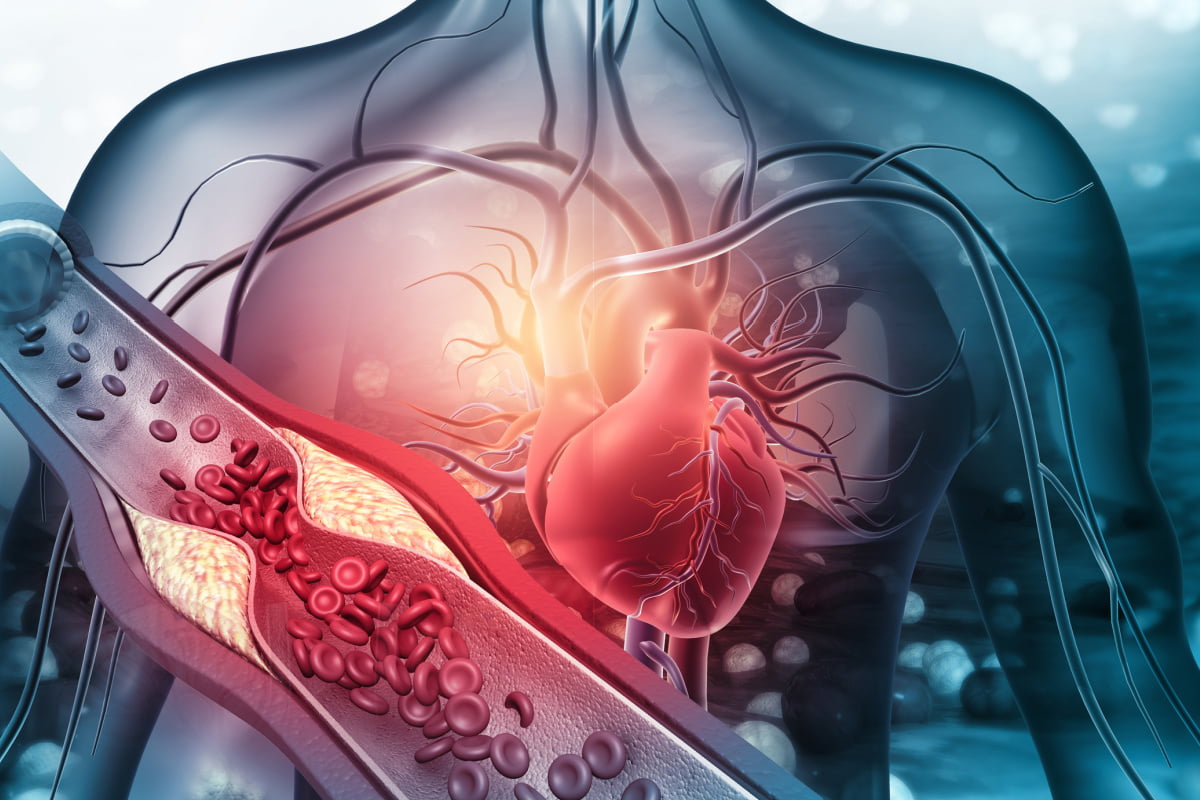In the world of integrative medicine, we look at many markers and metrics to provide valuable insight into your overall health and wellness; one fundamental is assessing your blood pressure and cholesterol levels. Both can reveal risk factors for cardiovascular disease, and high numbers for each often coexist in individuals with arterial damage or other inflammatory heart health issues.
While blood pressure and cholesterol are two distinctly separate metrics, if left unmanaged they can influence each other and lead to deadly cardiovascular events like stroke or heart attack as well as contribute to other health issues such as kidney damage, vision problems, and cognitive decline.
In this post, we’ll examine why blood pressure and cholesterol are important to numbers to watch, and how lifestyle changes can reduce the potential negative impact of these on your long-term health.
Cholesterol
Cholesterol is often vilified, but it plays crucial roles in the body. It is a fat-like substance that serves as a building block for cell membranes, hormone production, and the formation of fat-digesting bile acids. Integrative medicine doctors understand that without cholesterol, many essential bodily functions would be compromised.
So, when does cholesterol become a concern? Cholesterol levels become problematic when there is an excess of low-density (LDL) cholesterol, commonly referred to as “bad” cholesterol. High LDL levels can lead to atherosclerosis, a condition where plaque accumulates in the arteries, narrowing them and restricting blood flow to the heart and contributing to a variety of heart issues.
On the flip side, raising the levels of “good” cholesterol can be beneficial. This type of high-density (HDL) cholesterol helps eliminate the bad cholesterol from the body through the liver.
A normal cholesterol panel reading varies based on age and gender. However, as a general guideline, LDL cholesterol should ideally be below 100 mg/dL, while HDL cholesterol should be higher than 45 mg/dL. The balance between high-density and low-density cholesterol is crucial, especially for older adults.
Blood pressure
High blood pressure, often called hypertension, is another health concern that requires attention. It is frequently referred to as the “silent killer” because it typically doesn’t exhibit noticeable symptoms. However, it can manifest in the body in very subtle ways:
- Chest pain
- Headaches
- Shortness of breath
- Nosebleeds
- Vision changes
- Fatigue
- Irregular heartbeat
- Confusion
Normal blood pressure ranges are essential indicators of overall as well as cardiovascular health. Blood pressure is typically measured in millimeters of mercury (mm Hg) and consists of two numbers, representing the force of blood against the walls of your arteries during two different phases of the heartbeat.
A normal, optimal blood pressure range for adults has a systolic level less than 120 mm Hg, and diastolic less than 80 mm Hg. When the systolic numbers creep up to 130-180 mm Hg or the diastolic falls between 80-120 mm Hg, then it has reached the level of medical concern.
From an integrative medicine standpoint, high blood pressure or abnormal cholesterol levels are an indicator that your body’s system is imbalanced and in need of attention.
An integrative approach to treatment & management
From an integrative medicine standpoint, high blood pressure or abnormal cholesterol levels are an indicator that your body’s system is imbalanced and in need of attention. They are two common health issues that, when managed effectively, can significantly improve your cardiovascular health and overall well-being.
Simple and straightforward lifestyle modifications are proven to positively impact cholesterol and blood pressure measurements. Here are several of the key approached we take with patients at our clinic in Philadelphia:
Healthy, balanced diet
- Consume whole foods, including fruits, vegetables, whole grains, lean (ideally plant-based) proteins, and healthy fats
- Reduce sodium intake and alcohol consumption
Regular exercise
- Aim for at least 150 minutes of moderately intense aerobic activity per week
Lifestyle modifications
- Quit smoking
- Practice relaxation and stress-reduction techniques like meditation and deep breathing
It’s important to understand that these lifestyle changes may take time to affect your system, so patience is essential. In some cases, if lifestyle changes alone prove to be ineffective, prescription medication may be prescribed.
If you have high blood pressure or cholesterol, it’s essential to collaborate with your doctor to create a personalized health management plan. While maintaining regular check-ups can go a long way in disease prevention, the real impact occurs at home.
A commitment to healthy eating, regular exercise, stress management, and, if necessary, taking medication, can all reduce your risk of experiencing negative consequences from high blood pressure and elevated cholesterol levels. By getting to the root of the cause and taking proactive steps to protect your cardiovascular health, we can lay the foundation for a longer, healthier life.
About Dr. Dan Monti
Dr. Dan Monti is a nationally-recognized integrative medicine doctor and researcher who is dedicated to healing patients with innovative medicine. He is the founder and CEO of the Marcus Institute of Integrative Health at Jefferson Health, an international destination for science-backed integrative medicine treatments.


